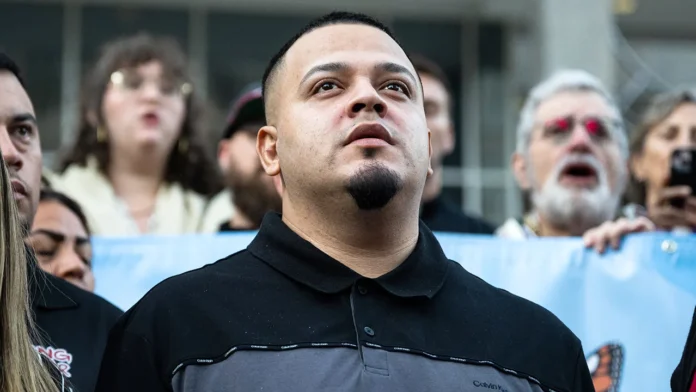The Department of Homeland Security has announced plans to deport Kilmar Armando Abrego Garcia to Liberia, escalating a tense legal and political dispute over immigration enforcement. The move, revealed in a recent court filing, has reignited national debate over the Abrego Garcia deportation case.
Officials said Abrego Garcia could be removed from the United States as early as October 31. The plan follows an agreement with the Liberian government, which has accepted the transfer despite Garcia having no known ties to the country. The Department emphasized that Liberia meets human rights standards and has offered assurances about humane treatment.
Abrego Garcia’s legal team immediately condemned the decision, calling it an act of political retaliation. They accused the administration of seeking to punish Garcia for challenging previous deportation attempts in court. His lawyer, Simon Sandoval-Moshenberg, said sending him to Liberia would separate him from his family and community in Maryland.
Abrego Garcia was mistakenly deported to El Salvador in March despite a judicial order preventing that removal. His attorneys argued that he faces threats in more than 20 countries and that Liberia was never among those reviewed for safety. They said Costa Rica had offered asylum, presenting a lawful and humane option for relocation.
The Department of Homeland Security countered by describing Liberia as a stable democracy and a strong American ally. It noted that the West African nation has constitutional protections for refugees and guarantees against mistreatment. Still, critics said the deportation plan reflected a broader pattern of punitive tactics targeting controversial immigration cases.
Senator Chris Van Hollen of Maryland sharply denounced the administration’s move, calling it a violation of due process. He claimed officials were intentionally avoiding accountability after a judge questioned whether the case represented political retaliation. The senator reaffirmed his commitment to ensuring that Abrego Garcia receives a fair trial in the United States.
The Abrego Garcia deportation case has become a flashpoint in the ongoing conflict between the Trump administration and immigration advocates. Supporters of stricter immigration policies view the action as a necessary enforcement measure, while critics argue it undermines constitutional rights and humanitarian principles.
As the legal proceedings continue, the future of the Abrego Garcia deportation remains uncertain, with growing attention from both lawmakers and international observers.


